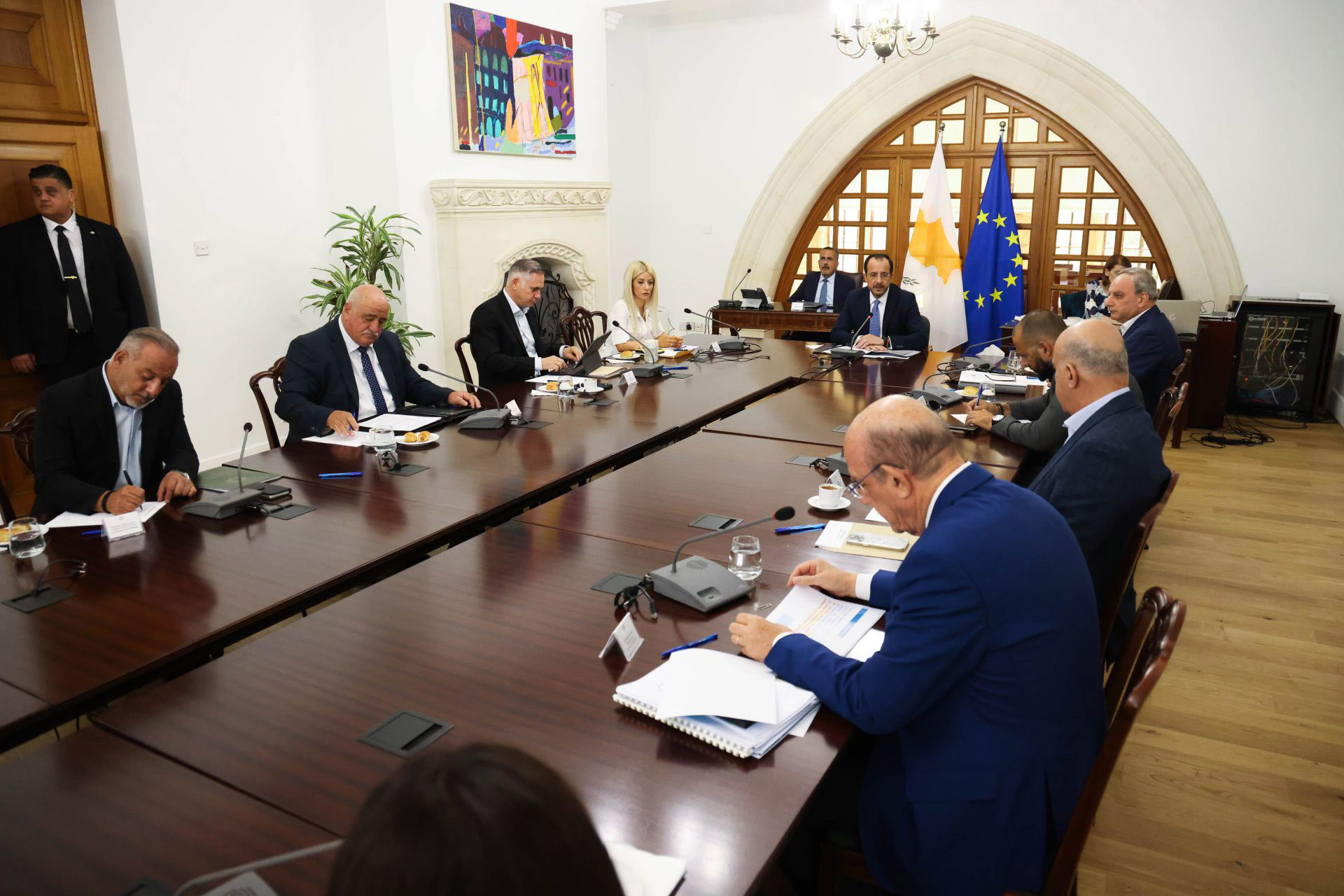Every once in a while a politician or party leader advocates the need for collective decision-making, usually in relation to economic matters. And to back this demand, the example of the national council, which has been in existence for consultations on the Cyprus problem ever since the Makarios presidency, is brought up. Everyone ignores the fact that the council is an advisory body with no decision-making powers that has always operated as a talking shop.
The truth is that the national council is something of a national joke, not even the party leaders take it very seriously; less so in the last seven to eight years during which there has been no peace process and meetings were few and far between. When there was a process there was never agreement among the leaders about what the president should do, and the council operated as a platform for quarrelling rather than for unity and consensus.
Yet the idealised view of the council remains and on Monday Dipa deputy Marinos Moushoutas repeated the proposal of his leader, Marios Garoyian, for national council meetings for issues other than the Cyprus problem. Speaking on Alpha TV, Moushoutas said there was a need for national understanding on vital issues regarding society and the operation of the state. He gave as examples political protection and crisis management, tax reform, environmental protection and recovery of stricken areas.
The Dipa deputy proposed that the national council meeting should be attended, apart from party leaders, by representatives of scientific and social agencies, technocrats and media professionals so that a clear framework of targets was formulated, with an emphasis on implementation rather than political confrontation. This worship of decision-making by committee is very popular in Cyprus, because politicians sell this as unity, which is, generally believed to be a good thing.
This is not necessarily the case. In a properly functioning and healthy democracy there is always disagreement and a divergence of views when matters of national importance are discussed. Unity is necessary in a war situation or in a meltdown of the economy but all other issues affecting a country are the responsibility of the government, which must be perfectly capable of taking decisions on vitally important matters without the need or obligation to consult party leaders or anyone else. And if the opposition parties do not approve of the decision they are free to say so.
There is no need for unity and collective decision-making in a democratic state. It is authoritarian regimes that usually boast about unity to cover up the fact that dissent is considered a crime. Cyprus will not be better off if Dipa, Diko and Akel have a say in political protection and crisis management procedures or in environmental protection. The fact is, that when the parties worked together on the reform of local government, the result of the political consensus was an unmitigated disaster. Why should these same parties be trusted to formulate policies and take decisions which are the responsibility of the executive because some politicians labour under the illusion that unity is a good thing?






Click here to change your cookie preferences